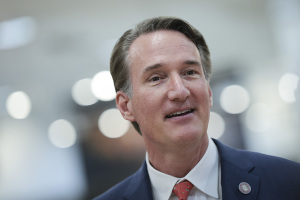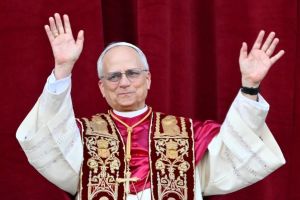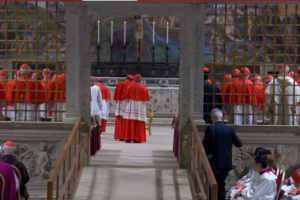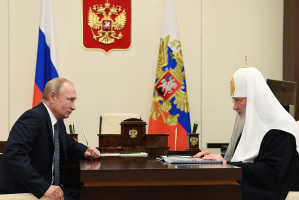Judge rules against 71 UMC churches claiming conference's disaffiliation policy is unfair
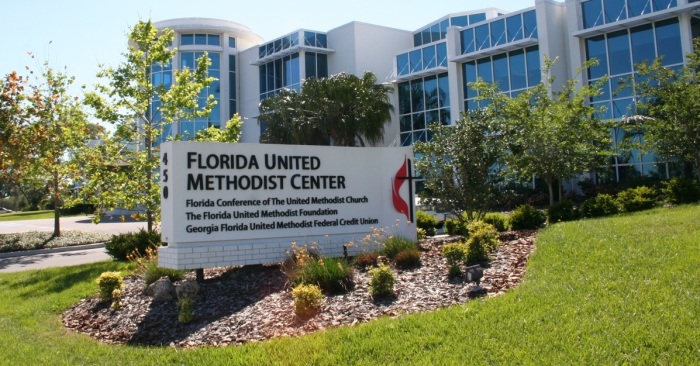
A Florida county judge has ruled against a group of congregations suing their regional body of the United Methodist Church over the payments they are required to make to proceed with disaffiliating from the denomination.
Circuit Judge George M. Wright of the 8th Judicial Circuit Court in Starke issued an order this week in favor of the leadership of the UMC Florida Conference, writing that "a secular court must avoid entanglement in internal church matters or doctrinal matters by deferring to the decision of the highest ecclesiastical body on these issues."
"In this case, the Plaintiffs admit that they are affiliated with the UMC," Wright ruled. "The Plaintiffs seemingly acknowledge that this court cannot resolve the dispute under the current state of the law in Florida."
Wright noted that under the current legal precedent in Florida, "this court does not have the power to adjudicate the intrachurch property dispute presented in the Plaintiff's Amended Complaint and must defer to the decision of the UMC."
Wright conceded the congregations might have a "justiciable issue," especially since similar cases are "being litigated throughout the country" using different standards for resolving property disputes between churches and their denominations.
Bishop Tom Berlin of the Florida Conference issued a statement Tuesday applauding the ruling, saying it "clarifies that if a church wants to leave the Conference, it must follow the rules established by the denomination."
"We have always supported a process that allows for a gracious exit, and which ensures the departing churches meet their financial, legal and moral obligations to not harm the Conference or the other member churches during their departure," stated Berlin.
Last July, 106 churches in the UMC Florida Conference filed suit against the regional body leadership because they considered the process for disaffiliating from the denomination to be unfair.
The complaint alleged that the payment required for the departing congregations to retain their property was "determined in the discretion of the aforementioned parties, and is always substantial and often prohibitive, yet nonnegotiable and unappealable."
Grace United Methodist Church of Lawtey served as the lead plaintiff, believing it should not have to pay for property it had purchased long before the UMC was founded in 1968.
"The Annual Conference has taken the position that it is entitled to keep the Grace UMC Property — which was owned and paid for by Grace UMC long before The UMC and the Annual Conference ever existed — unless Grace UMC pays a substantial payment of money as unilaterally determined by the Annual Conference Defendant," stated the suit.
Although there were originally 106 congregations involved in the litigation, over time, the number decreased to 71 as several churches left the lawsuit to pursue the current disaffiliation process instead.
In 2022, over 1,800 churches disaffiliated from the United Methodist Church amid a longstanding debate over the denomination's official stance on homosexuality and the ordination of gay priests.
Although efforts to change the UMC Book of Discipline's stance on these issues have failed, many theological liberal leaders in the denomination have either refused to follow or enforce the denomination's rules. This has led many theologically conservative churches to seek disaffiliation, with many of those joining the Global Methodist Church, a new denomination launched last year as a theologically conservative alternative to the UMC.
Many churches have faced obstacles in their quests to disaffiliate from the denomination. While some churches have had their disaffiliation votes outright rejected by their regional conferences, others have been told they must make large payments to leave the denomination.
Over 180 congregations in Georgia filed a lawsuit against UMC North Georgia Conference in Superior Court in Cobb County after the conference decided last year to prohibit any more congregations from disaffiliating amid a denominational schism over homosexuality.
In March, 38 Maryland churches sued the UMC Baltimore-Washington Conference and accused conference leadership of "holding their church buildings and property hostage."
















